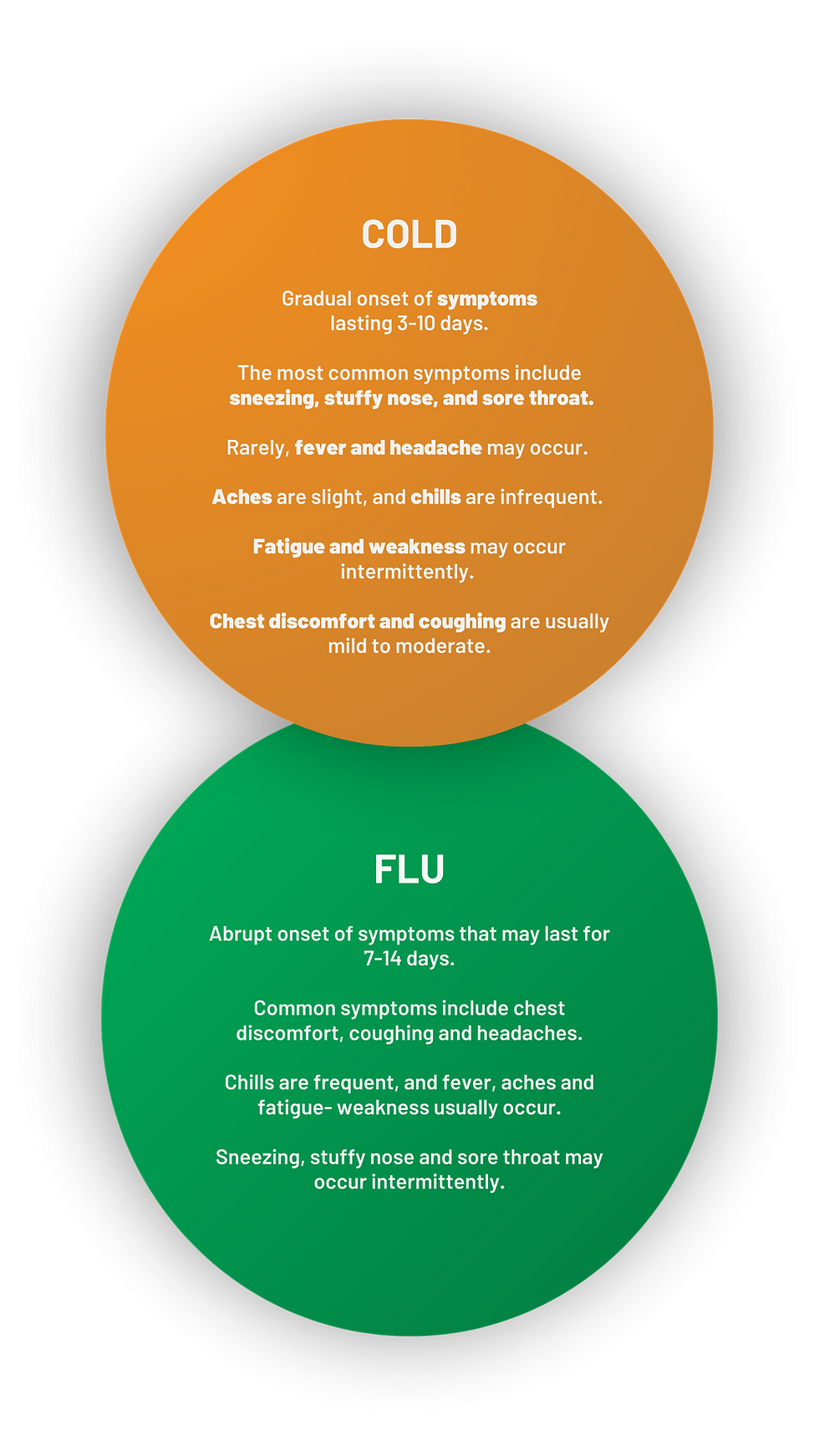Cold & Flu
Differences between Cold & Flu
-3.png)
Influenza (flu) and the common cold are both contagious respiratory illnesses, but they are caused by different viruses.
The Flu is caused by influenza viruses only, and there are two main types of influenza (flu) viruses, type A and B. The common cold can be caused by more than 200 viruses, but rhinoviruses are the most common type.
There are some differences in how one experiences the different symptoms that help us distinguish between a common cold or the flu influenza (flu).
The symptoms of flu can appear abruptly and are usually more severe, as they include fever, cough, sore throat, runny or stuffy nose, muscle or body aches, headaches, and tiredness& fatigue.
Cold symptoms appear gradually and are usually milder than the symptoms of flu. People with colds are more likely to have a runny or stuffy nose, while fever and headaches are uncommon.


How to Protect Yourself
You can reduce your risk of getting a cold or a flu by following these tips:
-
Wash your hands for at least 20 seconds when touching surfaces that could have germs on them using soap or an alcohol-based hand rub.
-
Disinfect objects and surfaces regularly (such as light switches, countertops, and doorknobs).
-
Avoid touching your eyes, nose, and mouth with unwashed hands.
-
Avoid contact with people who are sick.
-
Wear a face mask when someone around you is sick or when you are in crowded indoor space during a period of high infections.
-
Routine annual vaccination with the influenza vaccine offers good protection against the flu and people who are at high risk of infection should be vaccinated. There is no vaccine to protect you against the cold.
How to Protect Others
Tips to help prevent spreading it to others:
-
Stay at home while sick. Those infected with influenza are most infectious to others during the early stages of the illness.
-
Cover the mouth and nose and using a tissue when coughing or sneezing.
-
Avoid close contact with others such as hugging, kissing, or shaking hands.
-
Wash your hands often, especially after coughing, sneezing, or blowing your nose, using soap or an alcohol-based hand rub.
-
Clean well some surfaces and objects that are touched often.
If you have a high temperature or you do not feel well enough to do your normal activities, try to stay at home and avoid contact with other people until you feel better.
Home remedies
Tips to help you feel better during a cold or flu:
-
Rest and sleep well to help your body fight the infection.
-
Drink plenty of water to stay hydrated.
-
Consume hot fluids such as soothing herbal teas or soup.
-
Try gargles with salt water to soothe a sore throat.
-
Consume fruits high in vitamin C to help boost your immune system.
-
Do not drink alcohol. Alcohol induces dehydration and may interfere with cold medicines.
-
Do not smoke.
